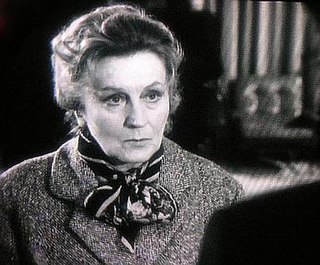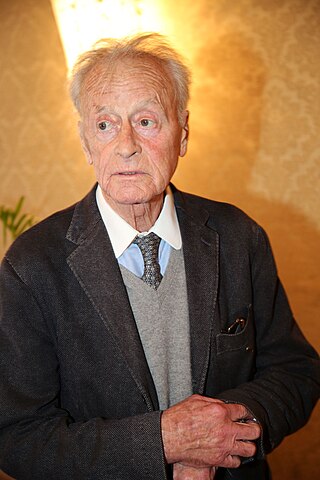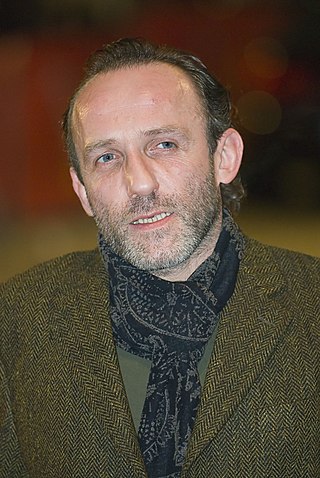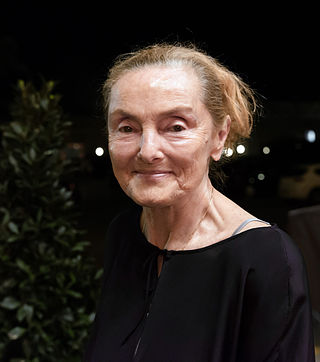
Romy Schneider was a German-French actress. She is regarded as one of the greatest screen actresses of all time and became a cult figure due to her role as Empress Elisabeth of Austria in the Sissi trilogy in the mid-1950s. She later reprised the role in a more mature version in Luchino Visconti's Ludwig (1973). She began her career in the German Heimatfilm genre in the early 1950s when she was 15. Schneider moved to France, where she made successful and critically acclaimed films with some of the most notable film directors of that era. Her performance in That Most Important Thing: Love is regarded as one of the greatest in the history of cinema. Coco Chanel called Romy “the ultimate incarnation of the ideal woman.” Bertrand Tavernier remarked: “Sautet is talking about Mozart with regard to Romy. Me, I want to talk of Verdi, Mahler…”

Maximilian Schell was a Swiss actor. He won the Academy Award for Best Actor for the 1961 American film Judgment at Nuremberg, his second acting role in Hollywood. Born in Austria, his parents were involved in the arts and he grew up surrounded by performance and literature. While he was still a child, his family fled to Switzerland in 1938 when Austria was annexed by Nazi Germany, and they settled in Zürich. After World War II ended, Schell took up acting and directing full-time. He appeared in numerous German films, often anti-war, before moving to Hollywood.

Rosa Albach-Retty was an Austrian film and stage actress.

Senta Verhoeven is an Austrian-German actress. She received many award nominations for her acting in theatre, film and television; her awards include three Bambi Awards, two Romys, an Adolf Grimme Award, both a Deutscher and a Bayerischer Fernsehpreis, and a Goldene Kamera.

Paula Anna Maria Wessely was an Austrian theatre and film actress. Die Wessely, as she was affectionately called by her admirers and fans, was Austria's foremost popular postwar actress.

Attila Hörbiger was an Austrian stage and movie actor.

Christiane Hörbiger was an Austrian stage, film, and television actress. Her first major film role was Mary Vetsera in Kronprinz Rudolfs letzte Liebe in 1955. She appeared on the stage of the Burgtheater as Recha in Lessing's Nathan der Weise in 1959, became a member of Theater Heidelberg and later Schauspielhaus Zürich. From 1969 to 1972, she portrayed Die Buhlschaft in Hofmannsthal's Jedermann at the Salzburg Festival.

Fritz Muliar, born as Friedrich Ludwig Stand, was an Austrian actor who, due to his huge popularity, is often referred to by his countrymen as Volksschauspieler.

Käthe Gold was an Austrian actress.

Susi Nicoletti was a Bavarian-born actress best remembered today for over 100 supporting roles mostly in comedy films. She was born as Susanne Emilie Luise Adele Habersack in Munich, but spent most of her childhood with her parents in Amsterdam. Back in Munich, she made her stage debut at age 13. Two years later she became a ballerina.

Helmuth Lohner was an Austrian actor, theatre director, and from 1997 to 2006 director of the Theater in der Josefstadt.

Nadja Tiller was an Austrian actress in film, television, and on stage. She was one of the most popular German-speaking actresses in the international cinema of the 1950s and 1960s, receiving international recognition when she played the title role in the 1958 film Das Mädchen Rosemarie (Rosemary) in 1958, shown at the Venice Film Festival. It opened the way to international films. She often played alongside her husband, Walter Giller.

Gusti Wolf was an Austrian stage, film, and television actress.

Karl Markovics is an Austrian actor and film director. He was born in Vienna, Austria.

Erni Mangold is an Austrian actress and stage director. Since 1948, she had appeared in more than 75 films and TV productions.

Gunther Philipp was an Austrian film actor, physician and swimmer.

Peter Weck is an Austrian film director and actor. In addition to his about 130 film and television acting credits between 1954 and 2015, he worked as a director on more than 50 productions between 1969 and 2007.

Erwin Strahl was an Austrian actor. From 1966 until his death, he was married to Austrian actress Waltraut Haas.
Anna Christina Maria "Christl" Mardayn was an Austrian actress/singer.

Franca Parisi is an Italian actress.



















